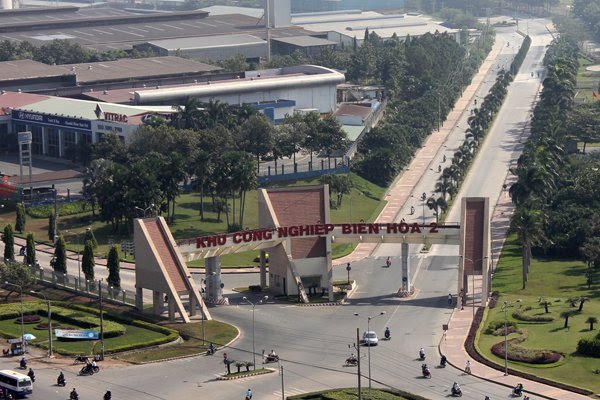
Dong Nai Province will focus on the quality rather than the volume of foreign direct investment (FDI) going forward and will not accept outdated technology, Mai Van Nhon, deputy director of the provincial Industrial Zone Management Board, told a press conference on January 3.
Dong Nai Province will focus on the quality rather than the volume of foreign direct investment (FDI) going forward and will not accept outdated technology, Mai Van Nhon, deputy director of the provincial Industrial Zone Management Board, told a press conference on January 3.
 |
| The entrance of Bien Hoa 2 Industrial Park in Dong Nai Province – PHOTO: LE ANH |
Statistics from the Dong Nai Department of Planning and Investment show that the province attracted VND27 trillion in domestic investment and US$1.8 billion in FDI in 2018. The number of newly established enterprises amounted to 3,500, rising by 4% year-on-year.
Speaking at the press conference on the province’s socioeconomic performance in 2018, Nhon noted that Dong Nai province would prioritize high-tech and ecofriendly projects during its foreign investment attraction scheme.
FDI enterprises entering Dong Nai Province to invest in and develop their operations must meet the province’s criteria and regulations on environmental protection, service and product quality and investment efficiency, Nhon said.
“Dong Nai Province’s plan for investment attraction this year and the coming years is to focus on selecting projects that use hi-tech, skilled laborers and environmentally friendly practices to facilitate sustainable and long-lasting development,” he stressed.
In addition to South Korean, Japanese and Taiwanese investors, European firms and investors will be the next target of Dong Nai Province, Nhon remarked, adding that the province will also leave the door open for the transfer of orders from China.
The statistics also indicated that in 2018, Dong Nai Province enjoyed significant investment from South Korea, Japan and Singapore. In particular, South Korea topped the list of investors in the province, with 40 projects totaling US$234 million in registered capital, followed by Singapore with five projects worth US$145 million and Japan pouring US$109 million into 16 projects.
South Korean and Japanese firms mainly invested in industrial production, while enterprises from Singapore preferred investing in the real estate, service and commerce sectors.
(Source:SGT)




